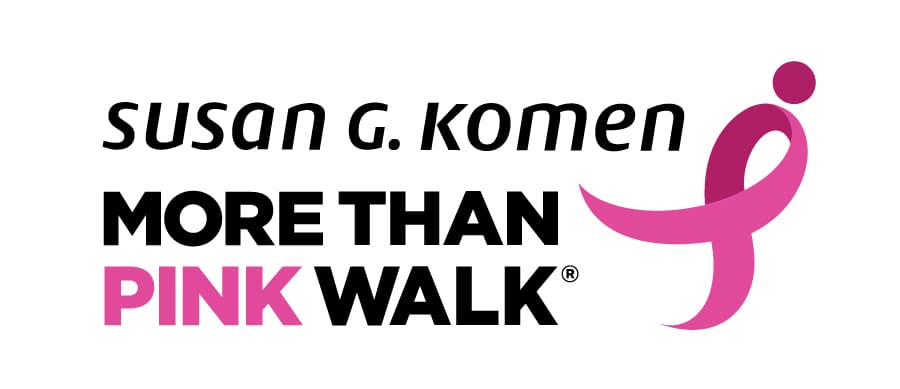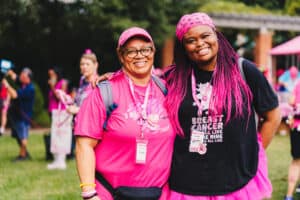San Diego
Our mission is to save lives by meeting the most critical needs of our communities and investing in breakthrough research to prevent and cure breast cancer.
San Diego
Our mission is to save lives by meeting the most critical needs of our communities and investing in breakthrough research to prevent and cure breast cancer.
Need Help?
Call our breast care helpline to assist with finding local screening and diagnostic facilities or clinical research trials, requesting financial assistance, or other questions or care needs.
Get Involved
Help us reach our vision of a world without breast cancer by getting involved in our local community.
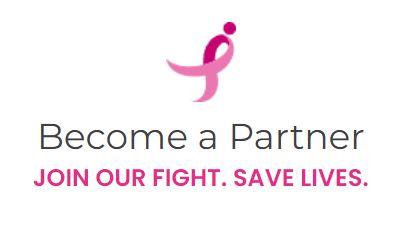
Partner with Komen
Susan G. Komen offers a variety of ways for your workplace, business, or organization to get involved. Reach out to your local Komen staff partners to learn more and make a difference in the fight against breast cancer.
Connect and Learn More
Dine Out for the Cure
Take a bite to help save a life!
Susan G. Komen San Diego’s Dine Out for the Cure unites local restaurants with our community of patrons in support of our vision of a world without breast cancer.
Restaurants, bakeries and coffeehouses from North County to South Bay serve up a delicious feast in support of Komen’s mission. A portion of sales for each partner’s Dine Out campaign will be donated to Komen San Diego to fuel our programs and services. Make an impact today by taking part in a Dine Out experience listed below!
If you have a business that would like to participate, click the button below to get in touch with your Komen San Diego staff member.
Learn More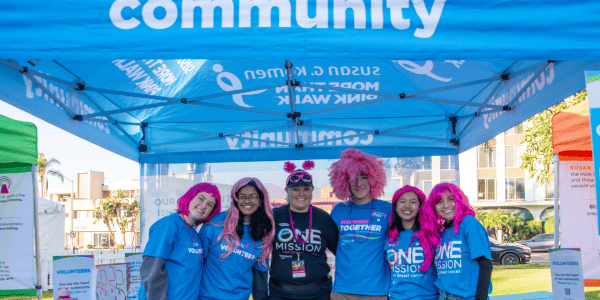
Get Involved in 2024
We have a variety of opportunities for individuals, groups, and companies to get involved in 2024.
Whether it is volunteering, starting a FUNraiser, participating in Dine Out, or sponsoring our walk, we have something for everyone.
- Interested in volunteering?
Email us at sdvolunteer@komen.org - Want to participate in Dine Out?
- Interested in getting involved as a group?
- Looking to partner with us for our 2024 San Diego Walk?
- Deepen your connection and join our Operations Committee for this year’s Walk.
For all of these things email us at ccrescenzo@komen.org
Local Events
Join the fight to end breast cancer by attending an event in San Diego!
Questions? Contact Us
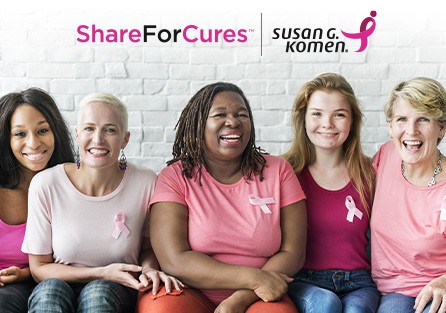
ShareForCures
Your breast cancer information is as unique as you are. When combined with thousands of other ShareForCures members, you provide scientists with a more diverse set of data to make new discoveries, faster.
Latest News & Information
Nikki’s Story: I’m Not Going to Let Cancer Steal My Sparkle
Nikki Anderson’s cancer journey began with a uterine cancer diagnosis in her 30s, which was followed by a breast cancer diagnosis six years later. She celebrates her journey by fundraising for the Komen 3-Day with Team Sparkle, inspired by her own adage: “I’m not going to let cancer steal my sparkle.”
The post Nikki’s Story: I’m Not Going to Let Cancer Steal My Sparkle appeared first on Susan G. Komen®.
Statement on Passage of Diagnostic and Supplemental Imaging Legislation in Vermont
MONTPELIER – Susan G. Komen®, the world’s leading breast cancer organization, today issued the following statement on the passage of H.621, critical breast imaging legislation in Vermont. Diagnostic and supplemental imaging is a critical form of breast cancer screening for some high-risk individuals and an important step in determining the need for a biopsy to […]
The post Statement on Passage of Diagnostic and Supplemental Imaging Legislation in Vermont appeared first on Susan G. Komen®.
San Diego
Contact Us
Susan G. Komen San Diego

Executive Director: Leia Brune
Email: lbrune@komen.org
Phone: 619-393-5259

